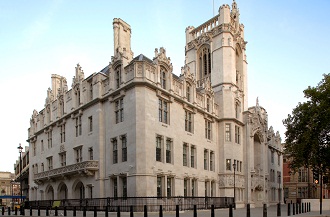Charities Take Battle of Will to the Supreme Court
Charities Take Battle of Will to the Supreme Court

Three animal charities are hoping to overturn a ruling that handed a daughter a large proportion of her mother’s estate, even though she was left out of the will. Lawyers for the RSPCA, the RSPB and the Blue Cross have told the Supreme Court that it could set a dangerous precedent if the wishes of Melita Jackson were ignored. Mrs Jackson left her entire estate to the charities, and nothing to her estranged daughter, Heather Ilott. However, the Court of Appeal last year awarded Mrs Ilott up to £163,000 (including £143,000 to enable her to purchase her home) from an overall estate valued at £486,000.
Mrs Ilott was rejected by her mother in 1978 when she left home to live with her boyfriend, Nicholas Ilott, whom she later married. Attempts over the years to reconcile failed and Mrs Jackson made no provision for her daughter in her will. At the time of her mother’s death, Mrs Ilott was in financial difficulties with five children, no pension and was on state benefits.
The inheritance dispute over Jackson’s estate has been ongoing for the last 11 years and the Supreme Court’s judgement is expected in January. This is an important decision as it is the first time that the Supreme Court has been asked to interpret the law in this area.
Ilott was initially awarded £50,000 under the Inheritance (Provision for Family and Dependants) Act 1975 on the basis that her mother had not left reasonable provision for her maintenance. She appealed and, in July 2015, her share of the estate was more than trebled to £163,000. The lower court decision set a precedent for grown-up children in financial hardship who have been excluded from a family member’s will. Previously it was only possible to appeal if reliance on the deceased family member could be demonstrated – so estranged children were excluded. The Court of Appeal said that Mrs Jackson had acted in a “unreasonable, capricious and harsh way towards her only child” and ruled Mrs Ilott should receive a greater proportion of the estate in order to save from a life “on the breadline”.
The charities have questioned the appeal court’s approach to the case and how the judge calculated the amount received by Mrs Ilott. They hope to reduce Mrs Ilott’s award from the estate back to £50,000, the original figure awarded to her in 2007. The latest hearing was heard by a panel of seven supreme court justices, headed by Lord Neuberger.
Ageing parents call in lawyers over care costs
Growing numbers of ageing parents are drawing up legal documents to ensure they can refuse medical treatment. They are also concerned about expensive care home fees from diminishing assets and reducing their family’s inheritance. The number of older people registering for lasting powers of attorney (LPA) has doubled to half a million in the past two years, amid concerns over the threat of developing dementia.
Lasting power of attorney protects individuals in cases where they lose mental capacity. There are two separate types of LPA, one covering finance and property, the other governing health and welfare. By nominating individuals to manage either or both of the two areas there is a clear statement of an individual’s intention.
The rules of intestacy can produce unexpected distributions after an individual’s death, which can result in family disagreements. They can be avoided by drafting a will. Wills allow an individual to set out exactly who they would like to benefit, including close friends and charities who are not covered at all in the intestacy rules.
Drawing up a will is the best way to ensure that your wishes are carried out as you intended after you’ve gone. A will also protects your loved ones and family and minimises the financial worry during what is an upsetting and stressful time. At IBB Solicitors, our wills, trusts and probate solicitors are here to help you plan for your family’s future.
Contact IBB’s experienced wills and trusts solicitors today to discuss your inheritance tax and estate planning issue. Call us today on 01494 790002 or email jacqueline.almond@ibblaw.co.uk. Alternatively visit wills, trusts and probate page for more information on how we can help you.
